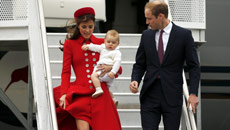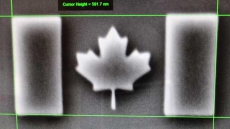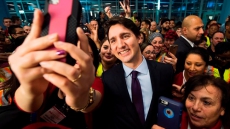VANCOUVER — Lee Chapelle has fond memories of spending afternoons with his wife in the mid-1990s, barbecuing in a small yard while his young children played in the grass and mimicked the cows' moos as the animals grazed in a nearby field.
Were it not for the five-metre, barbed-wire penitentiary fence interrupting the view, the scene could easily have been mistaken as an everyday family experience.
Between 1991 and 2010, Chapelle spent about 15 years behind bars for property theft. On more than a dozen occasions over that period, his young family was able to spend as many as three days at a time living with him.
The stays, which remain a part of the Canadian correctional system, are linked to a long-standing program aimed at increasing the chances of inmates successfully reintegrating into society after their release.
"It was a really big motivation to come home to my family to be able to spend time with my newborn baby and realize just how much was out there and just how much I wanted to be with them," Chapelle said.
"I had a family that needed me and that I loved and that I wanted to be with."
Some experts say Canada's so-called private family visit program, which began in 1980 as a pilot project, plays an important role in rehabilitating offenders, and also provides corrections officers with a useful tool for encouraging good behaviour from inmates.
The program has received recent attention after a media report that Kelly Ellard, a notorious killer in British Columbia, is eight-months pregnant following a conjugal visit from her boyfriend.
Lisa Kerr, a law professor at Queen's University in Kingston, Ont., said the program recognizes that the majority of federal inmates will be released and that it is in society's best interest to make that process as successful as possible.
"Close personal relationships are part of what makes people have hope about their future and gives them reason to invest in their correctional programming and move towards a release plan," she said.
Canada's longtime correctional investigator, Howard Sapers, said conjugal visits have been around for as long as he can remember. He cited research showing inmates who are allowed to maintain close family bonds have a lower likelihood of reoffending.
There is nothing in Canada's private family visit legislation that discriminates between gender or sexual orientation.
The stays typically happen in a more private section of the prison within small living units complete with kitchens and a yard, which Chapelle said inmates commonly refer to as "trailers." There are strict guidelines around who qualifies, both as an inmate and a visitor, and families pay for any food during the stay, which can last up to three days.
The program is only in place in federal institutions.
Prisons were a longtime fixture in Chapelle's family life. His wedding took place inside Kingston's medium-security Joyceville Institution and he said he consummated the marriage during his first private family visit.
The woman who would become Chapelle's wife was pregnant at the time of his incarceration, and the couple conceived another child during a later prison visit. Those experiences were crucial in developing the close relationship he now has with his children, he said.

"When it comes to your wife, it gives you a fighting chance of being able to keep your family," Chapelle said, adding that people underestimate the importance of human touch that conjugal visits allow.
One woman who makes frequent private family visits attributes the close connection between her partner and their two-year-old son in large part to the extended visits they have had while he serves time for home invasion.
"My son and his father have the sweetest little bond," said Jennifer, whose last name isn't being included because her employer isn't aware of her personal circumstances.
"He is at the age where he knows who his dada is. When my phone rings he thinks it's his dada. When we're in (the prison) waiting for him to come down he runs to him."
She described staying at the private-visit facilities at Fenbrook Institution in Kingston. Correctional officers would deliver four sets of utensils at the beginning of the stay, and there was only one steak knife on hand, which was attached to the wall with a 25-centimetre chain, she said.
An official with the Canadian Correctional Service said private family visits are part of a system of treating inmates humanely, and help connect them to the community.
"The goal of corrections goes beyond punishment and goes beyond custody," said Michael Bettman, head of offender programs and reintegration.
"The majority of offenders are going to return to Canadian society and our job in the correctional service is to prepare them and to mitigate any risk that they might pose."





